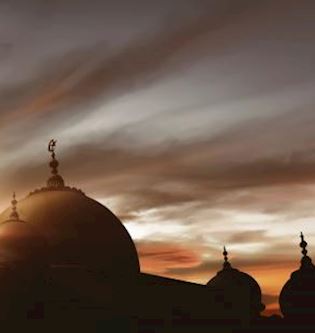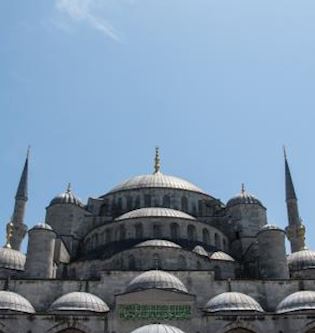Safar 2024: Second month of Islamic Calendar myths, history and misconceptions.
Safar 2024: Second month of Islamic Calander myths, history and misconceptions.
Safar is the second month in the Islamic (Hijri) calendar after Muharram. While it doesn’t have specific religious obligations, it holds historical and cultural significance in the context of the “Safar Islamic month”. In this blog, we’ll discuss the myths and misconceptions surrounding Safar, and key historical events that happened in Safar.
What is the Month of Safar?
Safar is the second month of the Islamic (Hijri) calendar, following the sacred month of Muharram.
What does Safar mean?
“Safar” is derived from the Arabic root ‘sifr’, meaning ‘empty’ or ‘void’. Interestingly, the words “Safar” and “sifr” share the same root letters. Historically, this name reflects the time when Makkans would leave their homes empty to travel after completing their pilgrimage. This practice gave the month its name, symbolizing a period when homes and streets were deserted.
Unlike other months in the Islamic calendar, Safar does not hold specific religious obligations or events. However, it is an important month for Muslims, reminding us of the transient nature of worldly life and the importance of continuous worship throughout the year. The Islamic calendar, being a lunar calendar, means that the month of Safar, like all other months, is marked by the beginning of a new moon.
Recognizing the sanctity and significance of all Islamic months, including Safar, is crucial in understanding the Islamic year and the sacred months. The perception of Safar as merely a period of emptiness is far from its true spiritual essence. Instead, it serves as a reminder of the many historical events that shaped Islamic history and the enduring faith of the Muslim communities throughout the time.
What did pre-Islamic Arabs did in Safar?
Before the advent of Islam, Safar was a month shrouded in superstition and fear. In pre-Islamic times, Arabs associated Safar with bad luck and calamities, believing it was an inauspicious time to start new ventures or get married. These beliefs stemmed from the practice of leaving homes empty for trade, gathering food, or engaging in warfare after the sacred month of Muharram.
Prophet Muhammad (PBUH) actively worked to dispel these superstitions. He emphasized that there are no bad omens in the month of Safar.
He Prophet(PBUH) said “There is no bad omen in the month of Safar” (Bukhari, Hadith 5707). T
This teaching was a significant shift from the pre-Islamic period, reassuring Muslims that Safar is not a month of evil but a part of the divine cycle of time.
Reflecting on Safar’s historical context, we understand Islam doesn’t entertain superstitions. The month is a testament to the Prophet’s efforts to eradicate false beliefs and reinforce the understanding that all events, good or bad, are part of Allah’s divine plan. Such a perspective instills faith and trust in Allah’s wisdom as Muslims approach Safar.
What are key events that happened during Safar?
Safar, besides being historically significant, is also marked by numerous key events from Prophet Muhammad’s life (PBUH). These include the Prophet’s migration to Madinah, significant battles, and the marriage of Fatima and Ali. Each of these events adds a layer of depth to our understanding of Safar and its place in Islamic history.
The Prophet’s Migration to Madinah
One of the most momentous events in Islamic history, was the Prophet Muhammad’s migration (Hijrah) from Mecca to Medina, which took place on 27th of Safar. The migration represents not just a physical journey, but also a pivotal moment that signaled a new chapter for the Muslim community. Fleeing from the Quraysh tribe’s plan to kill him, the Prophet(PBUH) took refuge in TJabal Thawr, where Allah’s miraculous protection came in the form of a spider weaving a web at the cave entrance, and protected him for three days before he could leave for Madina.
This migration, known as the Hijrah, is a cornerstone of Islamic history, symbolizing the triumph of faith over persecution and the establishment of a Muslim community based on the principles of justice and brotherhood. Ibn Abbas, a prominent scholar and companion of the Prophet, also contributed to the understanding of these events
Significant Battles and Campaigns
The month of Safar also witnessed several significant battles and campaigns led by Prophet Muhammad(PBUH). One such event is the Battle of Abwa, also known as the Waddan campaign, which took place twelve months after the Prophet(PBUH) migrated to Madinah. This campaign marked the first military expedition led by Prophet Muhammad(PBUH), establishing crucial alliances with local tribes, including the Banu Damrah.
Another significant event in Safar was the Battle of Bi’r Ma‘oonah, where seventy of the Prophet’s companions were tragically killed. These battles were not just military engagements but also moments that tested the resolve and faith of the early Muslim community, highlighting the challenges they faced and their unwavering commitment to the message of Islam.
Marriage of Fatima and Ali
In the second year of Hijrah, during the month of Safar, another significant event took place: the marriage of Fatima, the beloved daughter of Prophet Muhammad, to Ali, his cousin and close companion. This union is celebrated in Islamic history as a symbol of faith, piety, and the continuation of the Prophet’s lineage. It serves as a reminder that significant and joyous events can and do occur during Safar.
Islamic scholars assert that Safar is just like any other month, is under Allah’s will, and doesn’t inherently bring bad luck or misfortune. Superstitions about Safar being an inauspicious time for activities like marriage or business are unfounded and contrary to the principles of Islam. Instead, Muslims are encouraged to see Safar as an opportunity to earn rewards through acts of kindness, worship, and charity.
Importance of Worship and Charity in Safar
Safar is a time for Muslims to continue their regular religious practices, just as in any other month. Worshipping during Safar assists believers in maintaining their spiritual connection and fostering their faith. Reflecting on the events of Muharram and continuing good deeds in the muharram safar period, such as helping neighbors, feeding the poor, and giving charity, are highly encouraged.
Performing Umrah in Safar
For many Muslims, performing Umrah during Safar could be a calculated decision. One of the primary advantages is the potential for lower travel costs compared to the peak pilgrimage times. This financial benefit makes it more accessible for those who might otherwise be unable to afford the journey.
Additionally, there tend to be fewer crowds during Umrah in Safar, providing a more peaceful and less stressful experience for pilgrims. This serene environment allows for greater reflection and spiritual connection.
Reflections on the Prophet's Illness
The Prophet Muhammad fell ill on Monday, 29th Safar in 11 AH, which was a significant shock to the early Muslim community. His illness deeply affected his companions and his family. This period marked the nearing end of the Prophet’s leadership and was a time of great emotional and spiritual trial for the early Muslims.
Pondering over the Prophet’s illness reminds us of his human aspects and the significant influence he had. It also highlights the importance of leadership, faith, and resilience in the face of adversity. The Muslim community’s response to the Prophet’s(PBUH) illness underscores the deep bond they shared and their unwavering commitment to his teachings.
Safar, the second month of the Islamic calendar, is a period rich in history and significance. From the Prophet’s migration to Madinah and significant battles to the marriage of Fatima and Ali, Safar holds a special place in the hearts of Muslims. Despite common misconceptions, Safar is not an unlucky month but an opportunity for worship, charity, and reflection.
Frequently Asked Questions
Is Safar considered an unlucky month in Islam?
No, Safar is not considered an unlucky month in Islam as these superstitions were dispelled by Prophet Muhammad (PBUH).
Are there any specific religious obligations during Safar?
During Safar, there are no specific religious obligations or rituals in Islam. Muslims are encouraged to maintain their regular worship and good deeds.
What significant events took place during Safar?
Significant events during Safar include the Prophet’s migration to Madinah, the Battle of Abwa, the Battle of Bi'r Ma‘oonah, and the marriage of Fatima and Ali. These events are pivotal in Islamic history.
Can Muslims perform Umrah during Safar?
Yes, Muslims can perform Umrah during Safar, which can offer financial advantages and a more peaceful pilgrimage experience due to fewer crowds.
How do modern Muslims observe Safar?
Modern Muslims observe Safar by focusing on prayer, reflection, and educational programs to dispel myths and promote accurate information about the month.















